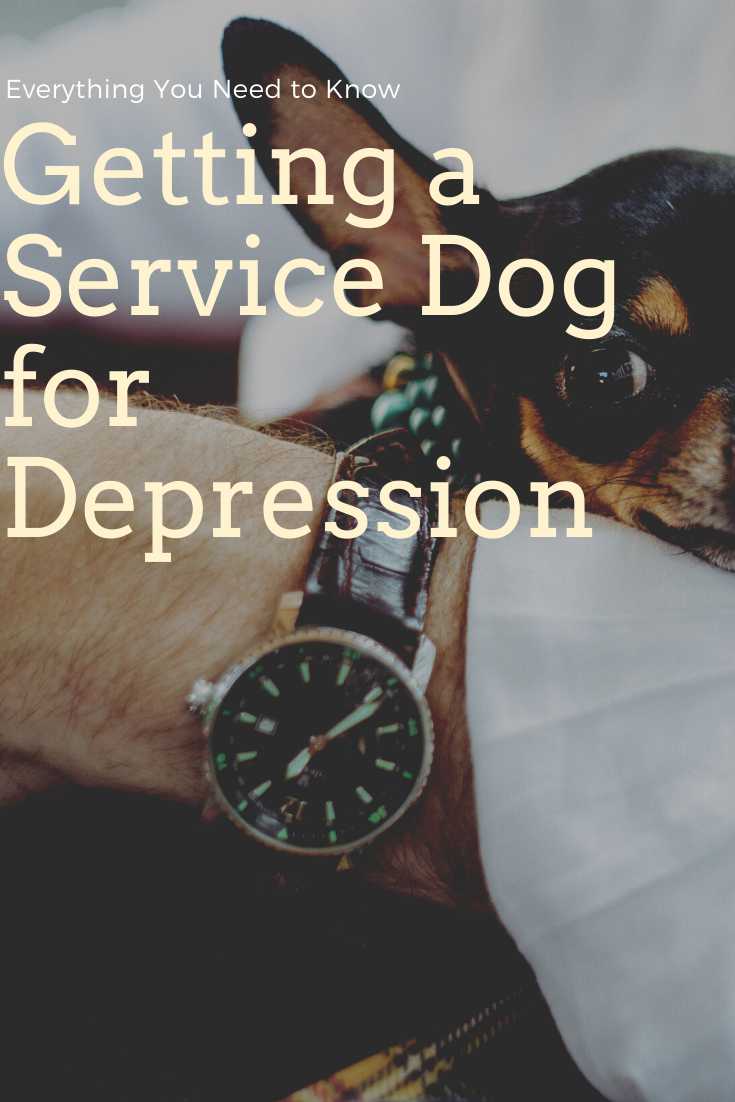
Thinking about getting a service dog for depression but not sure if you should? Here’s everything you need to know before making a decision.
Do you suffer from depression? Looking for ways to ease the symptoms? If so, you might get a service dog.
Service dogs offer several benefits to those suffering from depression, helping them to manage their condition. That said, there are complications with getting a service dog for depression. If you’re thinking about getting one, you must prepare yourself.
Need help? Then read on. This article contains everything you need to know.
The Laws That Make Service Dogs Possible
The idea of the service dog is a relatively new one. It took the passing of a few laws for service dogs to gain prominence. These laws include the following.
Americans With Disabilities Act (ADA)
The law that established service dogs as legitimate entities were the ADA or Americans With Disabilities Act. This act was vital in improving the quality of life of disabled individuals, including those with mental impairments.
The ADA states that individuals can have service dogs if they: 1. Have a debilitating mental or physical condition, 2. Have a history of a debilitating mental or physical condition, or 3. Have been deemed by others to have a debilitating mental or physical condition.
Fair Housing Act (FHA)
Another law that contributed to the development of service dogs in the United States was the FHA or Fair Housing Act. This law requires fair living accommodations for people with service animals and for people with emotional support animals. It negates apartment and condo pet policies for the above-mentioned individuals, eliminating both fees and restrictions.
Air Carrier Act (ACA)
The ACA or Air Carrier Act is vital, as it enables disabled individuals to take both service animals and emotional support animals aboard planes with them. Because of this act, service dogs don’t have to fly in standard pet cargo areas. They can stay with their handlers for the duration of the flight.
Types of Service Dogs
You may not know it, but there are different service dogs. These types include therapy dogs, emotional support dogs, and psychiatric support dogs, and they each come with their own sets of rules and responsibilities. We’ll get into these rules and responsibilities below.
Therapy Dogs
Trained to offer emotional support to a bevy of different people, therapy dogs are often found in hospitals, nursing homes, and other types of healthcare facilities. While they provide an invaluable service in these facilities, they are not allowed out in public areas. The ADA does not cover them.
Emotional Support Dogs
Emotional support dogs are like therapy dogs, as they provide direct emotional support to individuals in need. However, whereas therapy dogs serve several individuals in a single healthcare facility, emotional support dogs serve a single individual at his or her home.
These dogs don’t have to be trained. As long as they’ve been recommended by a licensed doctor or psychologist, they are deemed legally necessary. Because they’re covered under the Fair Housing Act (FHA), landlords and HOA boards are generally legally required to allow them in their residences.
Note, however, that emotional support dogs are not allowed in public areas. The only exception to this would be during air travel (as designated by the Air Carrier Act).
Psychiatric Service Dog
Psychiatric service dogs are the most skilled of the three types. In fact, they’re so skilled that they’re not even legally designated as pets. They’re seen as medical devices and so are allowed to go anywhere that their handlers go.
You will see these dogs everywhere, from grocery stores to restaurants to public transportation and otherwise. Specifically trained to perform tasks for their owners, they are not to be interacted with by strangers.
To receive a psychiatric service dog, you must have a severe psychological or psychiatric illness. This illness must impair your ability to live life fully and must be formally diagnosed by a mental healthcare professional.
What Can a Service Dog Do for a Depressed Individual?
Service dogs can help depressed individuals in several ways. Not only can they provide them with direct emotional support, but with companionship and mental stimulation.
These dogs can also serve several functional tasks. These tasks include everything from dialing 911 to reminding you to take your medication to identifying dire symptoms and more. In certain circumstances, they can even help to save lives.
A service dog is a combination of a friend and a medical device. It offers all the empathy and acceptance characteristic of standard dogs, but with a bevy of practical capabilities.
Where Can You Find a Service Dog?
Finding a service dog is as simple as finding a service dog training organization. These organizations exist all over the country, training dogs to handle a variety of responsibilities. Not only do they supply dogs with proper skills but they also place them with individuals in need.
As an individual in need, all you have to do is contact one of these organizations via phone or email. You can find them by searching on Google or another search engine (Hint: type “depression service dogs for sale”).
Once you’ve contacted one of these organizations, they’ll assess your specific needs and help to find a dog that addresses them. Ready? Find therapy dogs for sale now!
Having a Service Dog for Depression Can Make a World of Difference
Though it’s not true of every case, most times, getting a service dog for depression can make a world of difference. Dogs have a seemingly inherent ability to empathize with and calm the nerves of human beings. With the proper training, they can be complete game-changers.
Looking for more info on pets or mental health? If so, you can find it right here at our website. Look at our other articles now!





Leave a Reply